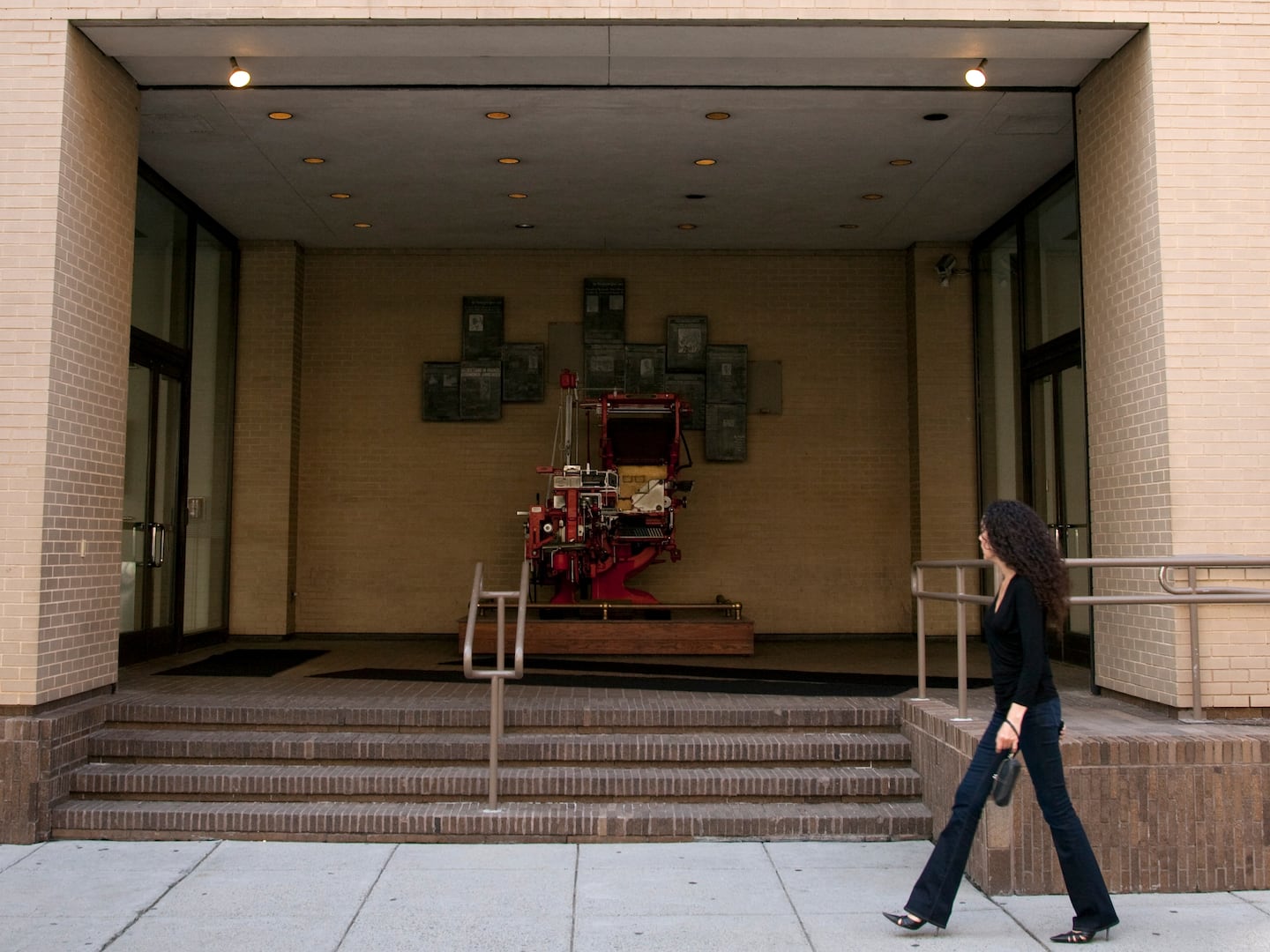I read with interest Jamelle Bouie’s piece this week—“Racism Not a Problem Anymore? Don’t Be Ridiculous, It’s Still a Big Issue.” Yes, there are unenlightened people in this country who will discriminate based on skin color. But let’s also confront another inconvenient truth: America’s major political parties aren’t serious about meaningful diversity either.
Democrats have done little for blacks in decades that has resulted in meaningful and measurable results, all while pocketing their votes. Republicans have fumbled at nearly every opportunity to make significant inroads in communities of color because, with few exceptions, they simply don’t know how to effectively communicate a compelling vision.
Since the 1960s, blacks have clung to the Democratic Party—the same party that imposed segregation and fought passage of the Civil Rights Act of 1964 and the Voting Rights Act of 1965. Democrats have created the myth that Republicans have sought to inhibit the progress of blacks at every turn, a fiction that Republicans have been unable to combat due to their inability to communicate effectively.
Critics will rebut this assertion with the charge that it was Southern Democrats who largely sought to block the civil-rights programs—many of whom would change their allegiance to the Republican Party. Fair enough. This point I will grudgingly concede.
However, it was not the Party of Lincoln that illegally wiretapped the phone of Martin Luther King, Jr.; we have then-Attorney General Robert F. Kennedy and FBI Director J. Edgar Hoover to thank for that. It was the Party of Lincoln that found enough votes to propel the Great Society programs over the finish line to deliver victory for President Lyndon B. Johnson, who infamously declared in regard to these measures: “I’ll have those n-----s voting Democratic for the next 200 years.”
Whether Johnson’s motives to bring about a Great Society were ulterior or altruistic in nature, one aspect rings true for me today: for all the trillions of dollars spent to ameliorate poverty, provide job training and assistance during economic downturns, the unemployment rate for blacks has remained much the same for the past 50 years.
In a powerful report published this year by the Economic Policy Institute, author Algernon Austin notes: “…The average unemployment rate for blacks over the past 50 years, at 11.6 percent, is considerably higher than the average rate during recessions of 6.7 percent.” Even worse, Austin noted that over the last 50 years, the black unemployment rate remained at a level either even or higher than during a typical recession.
The fact that black unemployment in America rose from 13.4 percent to 14.3 percent in October 2012 and President Obama still received 93 percent of the black vote tells you Democrats aren’t worried about losing this key bloc, despite little meaningful progress on unemployment or upward mobility.
President Kennedy’s charge to support tax reform with the famous phrase “a rising tide lifts all boats” is one that rings as true today as it was when he said it in 1963. Kennedy believed that higher participation in the economy would strengthen the economy. Decades of programs focused on wealth distribution and government dependency have largely proven ineffective in enacting significant change to the upward mobility of many communities of color. If only President Obama had echoed this note yesterday in his speech regarding income inequality—an opportunity missed.
Despite this dismal track record, Republicans haven’t made significant inroads with communities of color. Part of this is due to the stigma many black Democrats perpetuate in that voting for Republicans is the sign of one being a sellout or traitor to their race. A larger part of the problem is that the GOP “big thinkers” haven’t had a clue about how to actually communicate why our policies, vision, and ideology deserve a closer look.
Following the 2012 presidential election, the Republican National Committee issued a self-flagellating report that missed the real root causes of low minority turnout for the GOP—all at the cost of several million dollars. Seriously, I could have told them for free.
For one, the GOP needs to realize that there is no monolithic way of thinking in black America. For too long, the voices of Al Sharpton and Jesse Jackson have scared Republicans into believing otherwise. While there is still inequality in America, the civil-rights era is over. GOP outreach must extend beyond churches and congregations.
Next, stop treating black people like black people. All blacks aren’t poor, on welfare, or in jail. Articulating a strong pro-growth message that is anchored in the bedrock of a strong education would be a nice place to start.
While Obama’s Department of Justice is busy suing Louisiana in an attempt to deny the ability of largely poor black children to escape failing schools under the rubric of diversity, Republicans should trumpet the success of school-choice programs. More than half of black men without a high-school diploma are unemployed today; this situation will not improve until black children are not castigated for “acting white” by trying to learn in school. And in case you were wondering, both the attorney general and the president send their children to private school.
Moreover, Republicans should explain how they seek to treat all Americans equally under the law rather than curry special favor based on race and/or ethnicity. Despite all the cries of Democrats that Republicans are seeking to disenfranchise black voters by imposing strict voter-ID requirements, nothing could be further from the truth. In fact, the number of blacks who voted in states such as Indiana and Georgia after voter-ID laws were imposed increased, rather than declined.
The paternalistic notion that blacks are not capable of obtaining an ID tells you plenty about what many Democrats think of blacks in the 21st century. Given that one cannot board a train, plane, purchase alcohol, or enter Eric Holder’s Department of Justice without an ID, I suspect ulterior motives may be at play, an approach more about keeping and obtaining power at whatever the cost.
Finally, the incubator for success for Republicans will ultimately be found by looking at past electoral results as a beacon for future success. Before 1900, none of the 23 blacks elected to Congress were Democrats. The first black elected to the United States Senate? Ed Brooke from Massachusetts. In an interview with The Daily Beast last year, Brooke offered counsel that national Republicans should listen to. In the relevant passage, the former senator, now 92, noted:
My father was a Republican. My mother was a Republican. They wouldn’t dare be a Democrat. The Democrats were a party opposed to civil rights. The South was all Democratic conservatives. And the African-American community considered them the enemy.
Times have changed. Many Democrats from the 1800s to the mid-20th century represented the party of Dixie and Confederacy. The sad irony is that President Johnson, himself a Southern Democrat, was ostensibly supportive of the Civil Rights and Voting Acts of 1964 and 1965 while his private comments reveal a different posture. Barry Goldwater, his opponent in 1964, opposed these programs, leading to the near-unanimous shift of blacks to form a lock-stop allegiance with the Democratic Party. An opportunity seized upon by Democrats then and now—an opportunity wasted by Republicans for 50 years and one that we can change if we can offer a compelling path forward. The time to act is now.
So while race and racism remain in America today, it is clear both of our major political parties are stuck in neutral on how best to address diversity. Democrats take a certain voting bloc for granted because they can and Republicans’ woes are largely due to self-inflicted wounds. This is not the color-blind America Dr. King and true leaders of the civil-rights era fought for. We can and must do better.






